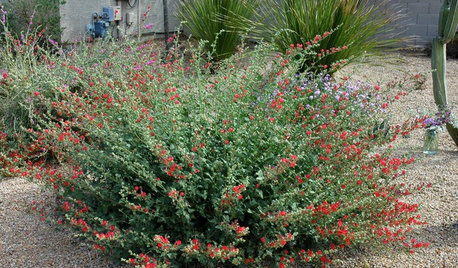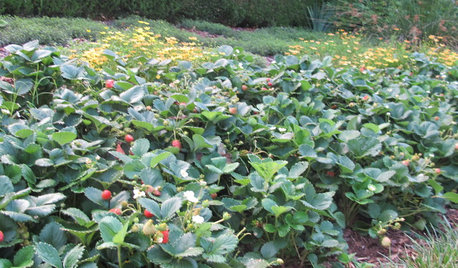Urine as Fertilizer - Many applications.
gooseberryfool
13 years ago
Related Stories

GARDENING GUIDESGet on a Composting Kick (Hello, Free Fertilizer!)
Quit shelling out for pricey substitutes that aren’t even as good. Here’s how to give your soil the best while lightening your trash load
Full Story
GARDENING GUIDESHow to Keep Your Citrus Trees Well Fed and Healthy
Ripe for some citrus fertilizer know-how? This mini guide will help your lemon, orange and grapefruit trees flourish
Full Story
GARDENING GUIDESHow to Switch to an Organic Landscape Plan
Ditch the chemicals for a naturally beautiful lawn and garden, using living fertilizers and other nontoxic treatments
Full Story
GARDENING GUIDESSouthwest Gardener's February Checklist
Orange you glad for a citrus-fertilizing reminder? And don't forget the recommended doses of vegetable seeds and cold-hardy flowers
Full Story
GARDENING GUIDESCommon Myths That May Be Hurting Your Garden
Discover the truth about fertilizer, soil, staking and more to keep your plants healthy and happy
Full Story
REGIONAL GARDEN GUIDESSoutheast Gardener's September Checklist
Fertilize strawberries, plant a tree or two and beckon hummingbirds to your Southern garden this month
Full Story
GARDENING GUIDESThe Poop Scoop: Enrich Your Soil With Good Old Manure
Get over the ick factor already — this natural super-ingredient for soil has so many benefits, you'll wonder why you ever went chemical
Full Story
LANDSCAPE DESIGNIs It Time to Consider Fake Grass?
With more realistic-looking options than ever, synthetic turf can be a boon. Find the benefits and an installation how-to here
Full Story
HOUSEPLANTSMeet a Long-Lasting Houseplant With a Forgiving Heart
Low light and little watering won't scar Zee Zee plant for life; this East Africa native has a tolerant nature and an exotic beauty
Full Story
GREEN DECORATINGBamboo Products — Earth Friend or Foe?
The ecofriendliness of this grass for flooring, wall coverings and furniture isn't cut and dried. Get the facts here
Full StorySponsored






gardenlen
morethornsthnflowers
Related Professionals
Cary Landscape Architects & Landscape Designers · Canton Landscape Contractors · Anderson Landscape Contractors · Barrington Landscape Contractors · Eagle Landscape Contractors · East Lake-Orient Park Landscape Contractors · Olympia Landscape Contractors · Streamwood Landscape Contractors · Suisun City Landscape Contractors · Berkeley Siding & Exteriors · Bozeman Siding & Exteriors · Fairfax Siding & Exteriors · Rochester Siding & Exteriors · Clearfield Siding & Exteriors · East Lake Solar Energy SystemsBelgianpup
rich3800_netzero_net
Belgianpup
Belgianpup
memphisp83
gardenlen
HU-626012341